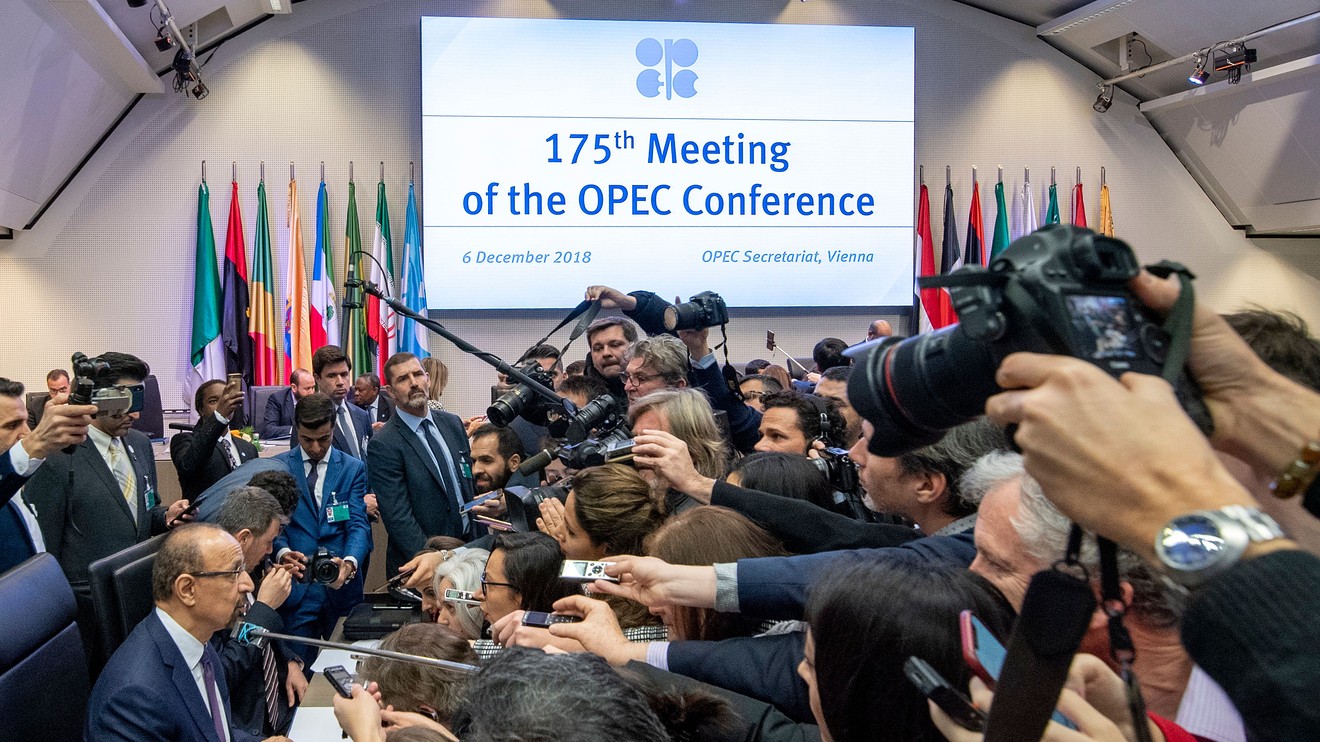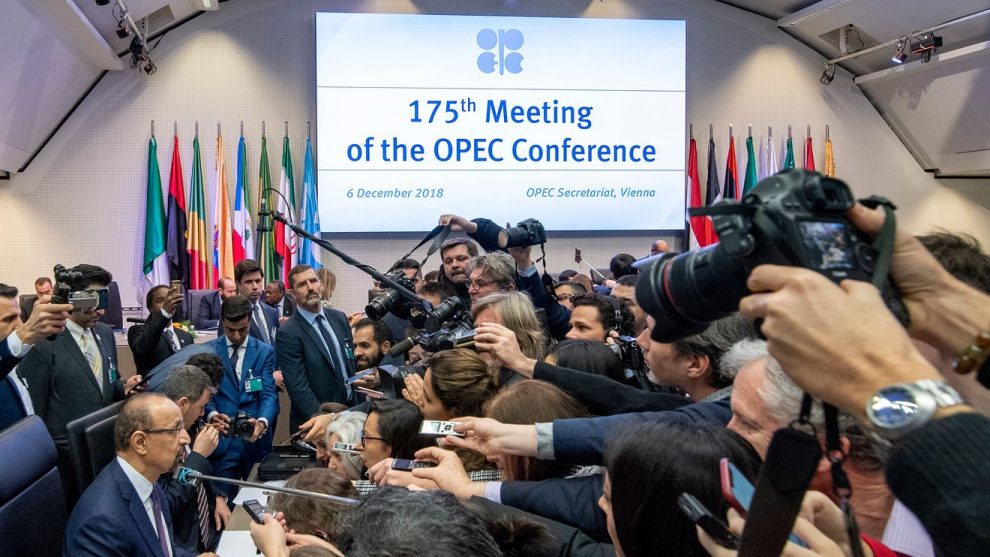
The speculation over the last few weeks, surrounding a postponement of the much-anticipated meeting of major oil producers, has served as a major distraction from the important decision at hand: whether or not to extend a production cut agreement that expires at the end of this month.
Saudi Arabia has said it is confident that the deal between OPEC and allied producers, also known as “OPEC+”, to cut a combined 1.2 million barrels of oil production during the first half of 2019, will be extended, according to a report from S&P Global Platts.
Confidence over the date of the expected decision, however, hasn’t been quite as certain.
Saudi energy minister Khalid al-Falih said Monday in Tokyo that all but one OPEC member has agreed to delay the group’s June 25-26 meeting to the first week of July—after the Group of 20 leaders’ summit in Osaka, the S&P Global Platts report said. The one holdout appears to be Iran.
Iran’s Minister of Petroleum Bijan Zangeneh, meanwhile, said he would confirm rescheduling the OPEC meeting if it was held on July 10, 11, or 12, according to a report from petro energy information network Shana, which pointed out that changing the dates would require unanimity.
“It is clear that [the producers] are trying to have the OPEC meeting and the OPEC+ meeting as close to each other as possible, making early July a more realistic date,” independent energy expert Anas Alhajji, a former chief economist at NGP Energy Capital Management, told MarketWatch. “Media organizations, journalists, and analysts at paying the price for the uncertainty about the meetings’ dates.”
The Wall Street Journal’s Middle East Correspondent Summer Said questioned in a tweet Monday whether any other OPEC report out there wanted to “join me in a group crying session over the dates of the next meeting?”
“Given the market situation now, it seems an agreement on maintaining the cut is a done deal,” said Alhajji. Still, he points out that “an increase in oil production is possible without [an] increase in exports.”
In the backdrop, geopolitical tensions in the Middle East worsened last week, but failed to provide a lasting lift to oil prices. For the week ended June 14, U.S. benchmark West Texas Intermediate CLN19, -0.84% fell 2.7%, while global benchmark Brent crude BRNQ19, -1.37% lost 2%.
Prices did see a sizable spike higher Thursday after an attack on two oil tankers near the Strait of Hormuz. The attack, “which the U.S. blames on Iran, with Tehran profoundly rejecting the accusation — stoked concerns about supply disruptions in the region,” said Fawad Razaqzada, technical analyst at Forex.com.
Read: Escalation in Mideast oil attacks could add $7 per barrel to price
Also see Strait of Hormuz: Oil ‘choke point’ in focus as U.S.-Iran tensions rise following attacks on tankers
“Tensions between Iran and the U.S. remain perilous,” he said. On Monday, a spokesman for Iran’s atomic agency said Tehran will break the uranium stockpile limit that was set by its nuclear deal with world powers in the next 10 days, according to the Associated Press.
“If Iran goes ahead with its warning and the nuclear deal collapses entirely, then we could see more sanctions being imposed on Iran, resulting in a potential supply shortage—especially in light of Saudi Arabia’s desire to reduce output from the OPEC+ group,” Razaqzada said.











Add Comment